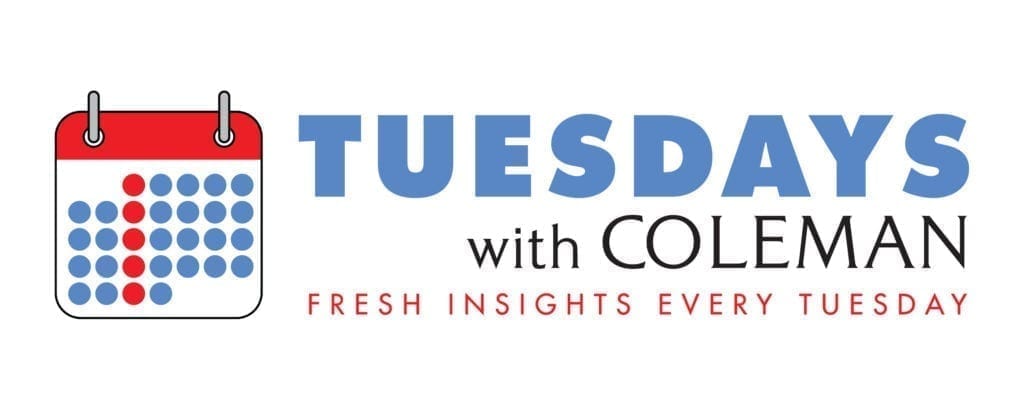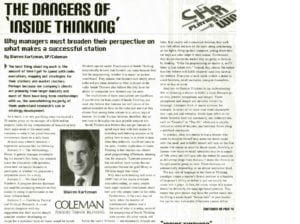
If you work at a radio station (or in any business, for that matter), it’s easy to get caught up in Inside Thinking. We sometimes get too close to the product for our own good, and are unable to see it through the lens of our customers. When you’re the manager of a radio station, this can lead to blurred strategic vision, exemplified by statements such as, “We just need to know what’s most popular with 25- to 39-year old men because that is our target.”
Is that really enough?
This is the final installment of a four-part series that revisits a Radio & Records column I wrote in 1999. It describes scenarios I ran into when speaking with radio station managers about research projects. All of these scenarios, including Scenario 4 – No Strategic Vision, still come up with regularity 18 years later.
The inability of some managers to look at their stations from any other perspective than from inside the stations’ walls manifests itself in Inside Thinking. These managers believe that listeners:
- Care deeply about radio
- Are paying close attention to our stations
- Can be manipulated
Conversely, Outside Thinkers believe the opposite. They understand that listeners’ station choices are:
- Driven substantially by habit
- A result of instantaneous need fulfillment
- Based on a simplistic set of perceptions they have of different stations
- Impacted by the role of language
- Determined by their lifestyle
This very different mindset leads Outside Thinkers to approach research with a much more strategic point of view rather than simply trying to find out what listeners do and do not like. They use research to ask questions like:
- What is my station’s awareness level in the market?
- How different is my actual product and what people perceive my product to be?
- Where do the musical tastes of my market really lie and are they moving in the direction that I believe they are?
- Does the fact that my target demo share dropped by 25% over the last two Nielsen books really mean that my position in the market has weakened?
- Am I focusing my energy and my resources on the right things?
Our suggestion that radio managers take the Outside Thinking approach to their stations—and their research—provides a good final thought for this four-part blog series. Our previous installments warned against obsessing over methodology, not investing in research when your station is successful and confusing tactical and strategic research. Outside Thinkers rarely make these mistakes, and as a result, their stations are far more likely to enjoy long-term success.

